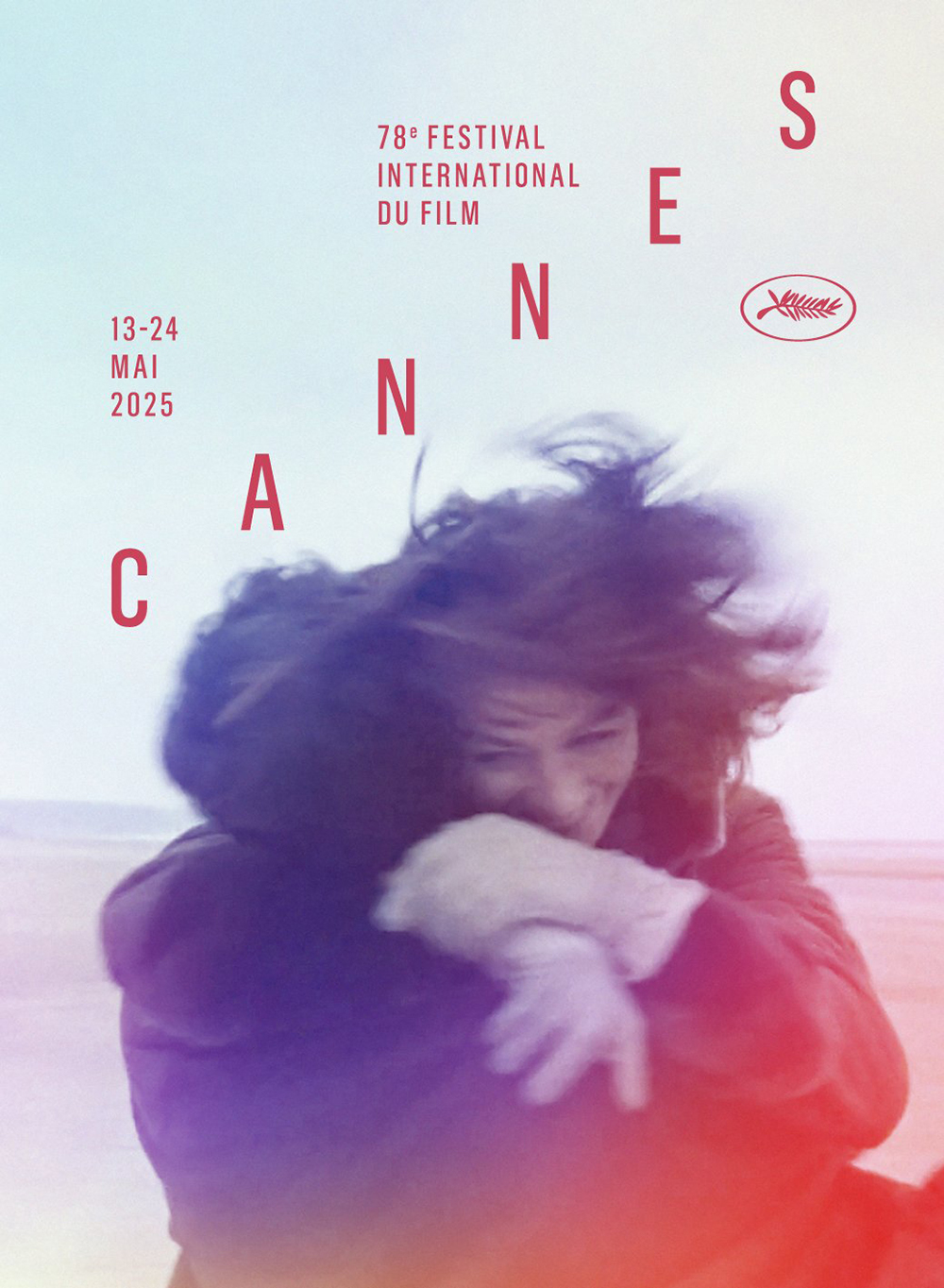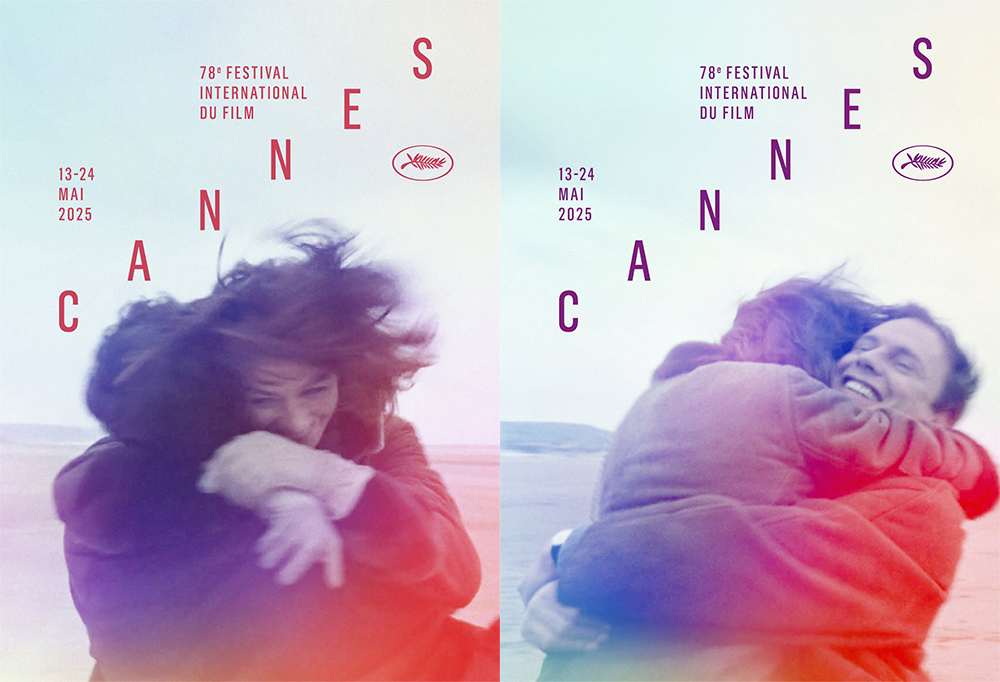Festivals - Cannes 2025: Two posters for eternity and a film selection with stunning promise
By Mulder, 21 april 2025

By choosing not one but two official posters for the first time in its history, the 2025 Cannes Film Festival is making a major aesthetic and symbolic statement. It draws its inspiration from myth, revisiting the timeless images of Claude Lelouch's film Un homme et une femme, which won the Palme d'Or in 1966. The two posters feature the silhouettes of Jean-Louis Trintignant and Anouk Aimée against a deserted beach and stormy sky, captured in the fragile yet eternal embrace that has left a lasting impression on generations of viewers. These are not mere nostalgic nods: they embody a gesture of reconciliation in the face of contemporary divisions, a way of reminding us that cinema, in its purest form, unites hearts and transcends time. One looks at the other in a gentle mirror image, and together they tell a love story so universal that it becomes eternal. It is a suspended emotion, a luminous interlude in a turbulent world, and a vibrant tribute to two actors who are now gone but still intensely alive on film and in our collective memory.
In this emotionally charged atmosphere, the official selection for this 78th edition is as demanding as it is abundant, proudly lining up the biggest names in world cinema alongside emerging voices to watch very closely. The competition, featuring 19 films, includes prestigious names such as Wes Anderson with The Phoenician Scheme, Ari Aster with Eddington, Julia Ducournau with Alpha, and Richard Linklater and the Dardenne brothers. These highly anticipated works tackle themes ranging from introspection to political commentary, from existential vertigo to social chronicles, in a diversity of styles and geographical origins that reflects the panoramic view that the Festival continues to take on the world. Films such as Sentimental Value by Joachim Trier and The Mastermind by Kelly Reichardt are already shaping up to be highlights, while A Simple Accident by Jafar Panahi and Sirat by Óliver Laxe show that Cannes continues to reach out to filmmakers who challenge boundaries, censorship, and narrative conventions.

Out of competition, the lineup is equally impressive, with high-octane blockbusters such as Christopher McQuarrie's Mission: Impossible – The Final Reckoning, starring a more determined Tom Cruise than ever. Spike Lee will also be there with Highest 2 Lowest, a free and explosive reinterpretation of Akira Kurosawa's High and Low. As for the opening film, Partir un jour by Amélie Bonnin, it marks a desire for balance between discovery and emotion, between anchoring in reality and striving for the universal. The Un Certain Regard section completes this panorama with equally unique offerings: Scarlett Johansson steps behind the camera for the first time with Eleanor the Great, Harris Dickinson surprises with Urchin, and Akinola Davies Jr. and Diego Céspedes bring their worldviews to life through intimate, sensory, and often moving stories.
Everything about the 2025 edition seems designed to reconnect with a form of emotional truth in cinema. The official posters are not mere promotional props but manifestos in their own right: they embody an ideal of fusion, gentleness, and creative freedom. “Eternity lasts only a moment,” said the official press release, and it is precisely this moment that Cannes 2025 wants to capture, with the magic that is unique to great works that transcend their time. In a world in turmoil, the festival has chosen tenderness, memory, and transmission. It reminds us that cinema is more than ever a gesture of love—towards stories, towards people, towards life. It is these suspended moments, these fragments of eternity between two screenings or two glances, that Cannes celebrates and that audiences eagerly await.
Credits for the official posters of the 78th Cannes Film Festival: © Les Films 13 – Un homme et une femme by Claude Lelouch (1966) / Graphic design © Hartland Villa
(Source: press release)

